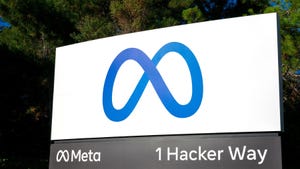Demand for Google’s TPU Chips ‘Challenges NVIDIA’s Dominance’Demand for Google’s TPU Chips ‘Challenges NVIDIA’s Dominance’
Rapid growth in demand for Google’s AI chips may start eating into Nvidia’s market share, according to Omdia.
December 26, 2024

New research from Omdia highlights the rapid growth in demand for Google’s Tensor Processing Unit (TPU) AI chips, a trend that may be strong enough to start chipping away at NVIDIA’s market dominance in GPUs.
Third quarter results from Broadcom, whose Semiconductor Solutions division acts as a custom chip outsourcing partner for Google, Meta, and several other AI players, give our analysts some insight into purchasing trends and information that is typically kept under wraps – how many custom processors is Google buying?
Broadcom’s CEO Hock Tan has repeatedly revised up his target for AI semiconductor revenue, aiming for $12 billion for this year. Based on this, it is estimated that Google’s TPUs could account for somewhere between $6 billion – close to Omdia’s existing estimates – and $9 billion, depending on the breakdown between compute and networking devices.
This figure includes a substantial number of Meta’s MTIA chips, with a project for a mysterious third client expected to ramp up in 2025.
Alexander Harrowell, principal analyst at Omdia noted: “Even though there is some uncertainty in the exact ratio between compute and networking devices, shipments of TPUs, even at the lower $6bn estimate, are growing at a pace fast enough to take share from NVIDIA for the first time.
“It’s worth noting that Google’s Cloud Platform business continues to grow as a share of Google’s revenue while improving profitability. This could indicate that TPU-accelerated instance types or AI products running on TPUs are driving the growth at Google Cloud, especially as accelerator instance types are high-margin products.”
Read more about:
Chip WatchAbout the Author
You May Also Like







